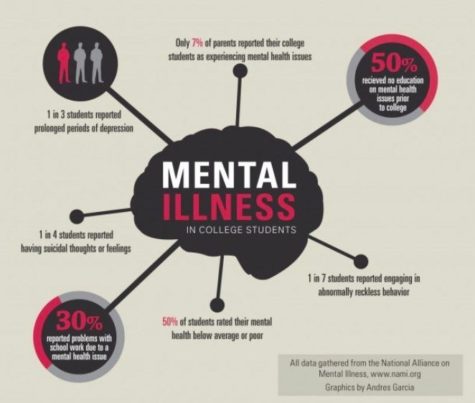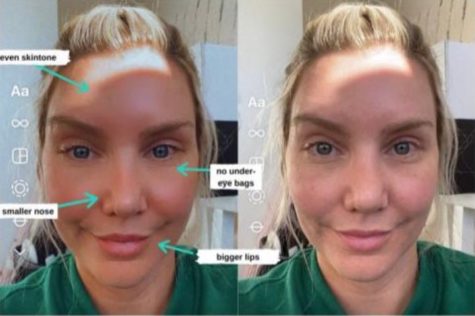College Students Should Get Mental Health Days
April 20, 2022
College poses a whole new set of obstacles that many have never endured. The transition from high school to college can be especially tough for teens. With time management comes setting aside time to do homework, balancing social and academic lives, studying, and getting up every day to attend classes. COVID-19 has added a component to college life that has made each day more challenging for students. By providing college students with at least one mental health day per month, individuals would have something to look forward to while having a designated time set aside to focus on hobbies instead of worrying about what the next assignment needs to be done.
It is no surprise in recent years, and even more so in recent months, college students have experienced increased levels of anxiety and depression compared to previous years.
Before the pandemic, 12.9 percent of both youth and adolescents experienced some level of depression, while only 11.6 percent reported anxiety, detailed JAMA Pediatrics.
According to the Healthy Minds Network Study, as of 2021, more than two years after the start of the pandemic, 34 percent of college participants had an anxiety disorder, 41 percent had experienced depression, and nearly 73 percent reported “moderate or serious psychological distress,” according to an American College Health Association National College Health Assessment survey.

By providing students with an option to pick any day during the month for excused attendance, those who may be struggling with the state of their mental health can take a day to focus on being present and reset their energy to prepare for the month ahead.
Students could choose not to take the day off if they feel it isn’t the best decision for them as well. As long as the option is available, students can decide whether they think it is in their best interest, depending on their mental state and emotional tolerance.
Students who do not have mental illness can still endure many hardships associated with college. Whether it be staying up until 5 a.m. studying for an upcoming exam, cramming a last-minute project the night before it is due, or finding time to hang out with friends while still staying afloat in classes, a mental health day would encourage students to find time to do what they love.
Missing one class per month would ensure that students do not fall behind but are still given a one-day break when they deem it necessary.
In my second semester of junior year, I have realized that I have been so overwhelmed with homework, studying, and projects that I have lost time that I usually spend hanging out with friends or participating in activities that I love. This is because I have become engulfed in deadlines and due dates.
One mental health day a month could save college students struggling the most, provide them with time to be present, and recognize that it is okay to focus on bettering yourself when necessary.









